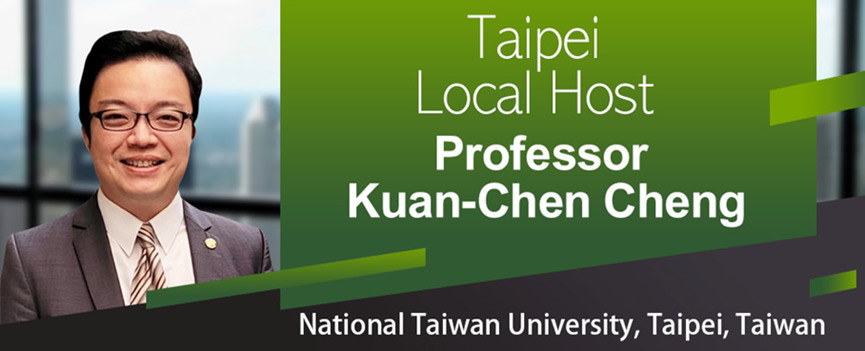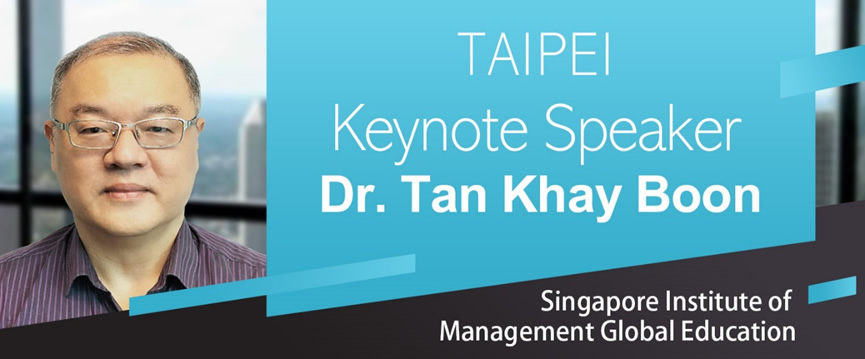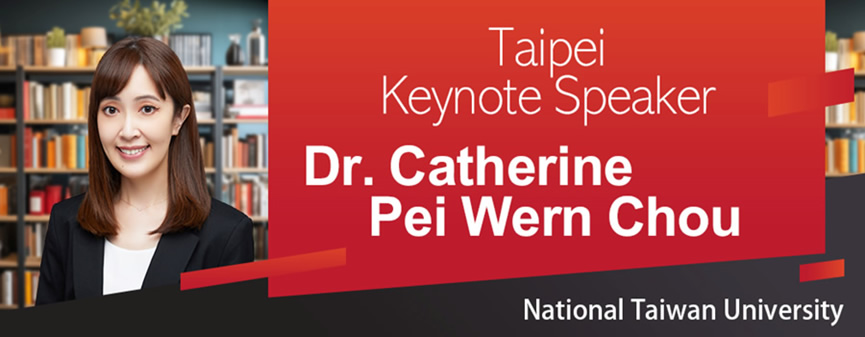9th International Symposium on Education, Psychology and Society
May18-20, 2025Taipei, Taiwan

Introduction:
Dr. Kuan-Chen Cheng joined the Institute of Food Science and Technology, National Taiwan University, as a faculty member in 2011, after having obtained his PhD in Microbial Engineering at the Pennsylvania State University in 2010, followed by one year of postdoctoral training at the University of Arizona at Tucson. Dr. Cheng became a full professor in 2019 and honored an IAFoST fellow in 2024. Dr. Cheng has mentored 7 post-doc fellows, 11 PhD students, and 90+ master students already. The R&D work of his group focuses on three major areas: food biotechnology, renewable biomaterials and precision health. Major areas in which he has been actively involved in recent years include (1) the establishment of food fermentation processes that have assisted the local food industry in producing value-added functional foods; (2) the introduction of novel techniques for the food industry, including cold plasma technology, electrospinning, and microbiome cultivation; and (3) the development of fermented functional foods for aged people. His work has been recognized at an international level as reflected by his publication record of over 160+ SCI-listed journal articles (7,029 citations and h-index of 44) in food-related fields.
Welcome to TaipeiOn behalf of the organizing committee, it is our great pleasure to invite you to the joint conference of ICNSE, ISEPST, BREFM, and SICASE, which will take place at the Sheraton Grand Taipei Hotel in Taipei, Taiwan, from May 18 to 20, 2025.
In the post-pandemic era, we are delighted that these four conferences—ICNSE, ISEPST, BREFM, and SICASE—can once again be held as in-person events. The active participation of attendees not only enhances the impact of the meetings but also fosters international collaborations and connections. Continuing this valued tradition, we are confident that this joint conference will serve as an excellent platform for exchanging ideas, sharing research, and deepening our understanding of current issues across multiple disciplines.
We extend our heartfelt gratitude to the organizing committee members, conference sponsors, and dedicated staffs who have contributed their time and efforts to make this event possible. A special thanks also goes to our keynote and invited speakers, as well as to all participants who will be presenting their work and insights through talks and poster sessions.
Taipei is a dynamic city that seamlessly blends technology, culture, education, and tourism. As a global tech hub, it is home to world-class innovation, including the renowned Taipei 101 and the thriving semiconductor industry. Rich in history and culture, Taipei offers stunning temples, night markets, and museums like the National Palace Museum. The city’s top universities foster academic excellence and research. Visitors can explore scenic spots like Yangmingshan National Park or relax in Beitou’s hot springs. With its vibrant mix of modernity and tradition, Taipei is a must-visit destination for business, learning, and adventure.
We sincerely hope you enjoy both the conference and your time in the vibrant city of Taipei. Looking forward to welcoming you soon!
Thank you!

Introduction – Dr Tan Khay BoonDr Tan Khay Boon graduated with a Bachelor of Science, a Bachelor of Social Science (Honours) and a Master of Social Science in Economics from National University of Singapore and also a PhD from Nanyang Technological University.He is currently the Associate Dean in the Academic Division of Singapore Institute of Management Global Education and an Associate Faculty in Singapore University of Social Sciences.He has more than twenty years of teaching experience in various economics subjects in the local universities.His research interests are Econometric Modelling and Time Series Forecasting and his research works has been published in local and international journals.
Singapore Economy from Third World to First:
An Analysis of Theory and Practice
Since achieving independence in 1965, Singapore has successfully transformed from a fishing village, a tiny colonial outpost into a modern city state and a global economic centre with strong manufacturing and service sectors. Per capita GDP, the common measurement of standard of living, has increased significantly together with many other growth indicators over this period. All these combined with an efficient government have contributed to Singapore being ranked amongst the top in terms of global competitiveness. This study traces the history of Singapore prior to its independence, discusses the characteristics of Singapore economy and explains the relevance of economic growth theories such as the theory of comparative advantage, the EGOIN Theory, the Triple C Theory and the S-Curve Theory in developing Singapore. This paper also discusses the unique role of fiscal and monetary policies that has contributed to its transformation and economic success.

Brief BiographyDr. Catherine Pei Wern Chou is a Project Associate Professor in the Department of Psychology at National Taiwan University (NTU) in Taiwan. Before joining NTU, she served as an Associate Professor at Southeast Missouri State University in the USA.She obtained herB.S. in Psychology from National Chengchi University in Taiwan andher M.A. and Ph.D. in Psychology from the University of California, Riverside. Dr. Chou specializes in developmental psychology, withresearch focusing on parenting, culture, decision-making, risk-taking, and identity exploration among adolescents and emerging adults.She is an activememberofthe Society for Research in Child Development (SRCD),the Society for Research on Adolescence (SRA), and the Taiwanese Psychological Association.
Parenting and Adolescent Risk-Taking: A Cross-Cultural Perspective from the U.S. and Taiwan
This presentation introduces a cross-cultural study conducted in the U.S. and Taiwan, investigating the influences of parenting on health-related risk-taking behaviors (e.g., risky driving, binge drinking, and drug use) among adolescents. While previous research generally indicates that parental behavioral control benefits youth development, cultural perspectives vary on psychological control. In the U.S., psychological control is perceived negatively as it intrudes on children’s autonomy, whereas in Asia, it is often seen as a means of fostering familial order. This study explores the relationship between parental control and risk-taking behaviors, with a focus on how decision-making processes mediate this link across cultures. By highlighting the role of cultural context, the research underscores how societal norms shape parental influences on adolescent behavior. The findings offer insights into preventing risk-taking behaviors and promoting positive youth development. Practical implications will be discussed, emphasizing strategies to strengthen adolescent decision-making skills and parent-child relationships in diverse cultural contexts.
Venue:



